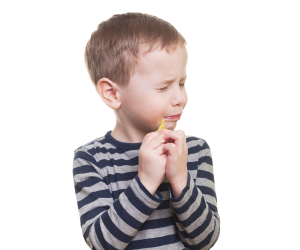 When my brother was five, he picked up a stone from the garden and threw it at an old lady, our neighbour. My mother was aghast!
When my brother was five, he picked up a stone from the garden and threw it at an old lady, our neighbour. My mother was aghast!
Although the lady was teasing my brother, “That was no way to behave!” my mom says. “I decided to check his behaviour outside home from that point onwards,” she adds.
Have you witnessed similar expressions of anger from children? Children sometimes react in extreme ways when they can’t handle situations.
Repetitive angry reactions make them bullies. And thus, begins their foray into bullying.
A bully is a child who is aggressive!
This aggression gets demonstrated in his/her relationships. Friends, neighbours, and mostly, younger siblings bear the brunt of this fury while the parents are usually unaware.
Such a child is not necessarily ‘bad’ or insensitive. In fact, children, who are more sensitive turn into bullies. Usually, they are unable to handle themselves and their emotions. These patterns are easily identifiable and repairable provided parents are up to taking this challenge.
Are you facing a similar challenge? Do you think your child is a bully? Would you want to help rectify his/her
behaviour is case he/she is one? Read on to find out:
Identify a bully:
When children feel dejected at home or within their community of friends, they might become aggressive that leads to bullying.
Unhealthy at home
The eldest of three children, Gaurav was into bullying and physical abuse. “As a child, growing up in a joint family, I would always see my uncle and father bickering about one thing or another,” he says.
He would try and involve himself in games or TV but could never evade their arguments. This made him feel quite dejected and without realising it, led him to bullying younger children in school. He is almost 30 now, but still, remembers his anger and antagonistic behaviour.
When children do not have a say and are routinely dominated, they tend to dominate other children. In some cases, a bully is bullied at home by elder siblings or any other member in his/her family.
Relationship with parents
Sometimes, parents find their child to be very quiet at home. But, teachers or caretakers complain of his/her bullying tendencies. Such a contradiction is difficult to accept. In fact, some parents even ignore such comments.
Although it is difficult to accept something that you have not witnessed, you should probe deeper. Don’t take the opinions of teachers and other onlookers for granted. Often bullies distance themselves from parents and will not display aggression in front of them.
Reactions
A bully has over-the-top reactions when scolded at home. Along with verbal abuse, you may witness physical abuse as well. Physical abuse involves hurling things at parents, trying to hit siblings or cousins, physically rejecting a caress from parents, and so on.
Remember that such reactions are just his/her way of gaining attention, which otherwise might be lacking. However, this point does not justify bullying in any way.
Bullying may have dire consequences and the child must be stopped before more damage is caused.
The following five tips will help:
Avoid public reproach:
No doubt that a child who has taken to bullying makes parents angry. However, he/she should never be reproached around an audience. A public rebuke might stop the child from bullying when caught, but will not stop him/her when no one is looking.
You see that your child has pushed his/her way through a queue. You should softly ask him/her to wait for his/her turn. Later, when you find the child alone, you should tell him/her that such a behaviour was unacceptable and should not be repeated.
The same attitude will work for teachers as well. They should check if they are being harsh in front of the class and avoid it.
Make the correct contact:
During a recent seminar at my son’s playschool, teachers were quite vocal about not using force with children. “Although we are all aware that using force with young children is wrong, how many of us actually deliver on this understanding?” asked the principal.
It makes me wonder if parents need to fix their communication skills? We might be adding aggression to their behaviour by connecting wrongly with them.
A bully should be made to understand that bullying will not be appreciated. Using force to drive this point is doubling the aggression. It’s adding more fuel to the fire.
Threatening or outbursts will worsen the situation. You need to communicate to the child that his/her bullying is not correct and will harm him/her in return.
Children, bully or not, deserve to be understood. If they feel that they are loved but scolded only at being wrong, they will gain confidence. They will try and behave better to get appreciation.
This way, don’t you think their negative patterns will reduce?
Get professional help:
“Parents can identify a bully and deal with him/her sensitively,” says Dr Anita Prasad, a Kolkata-based psychologist and a mother of two boys. “(However,) you should not shy from taking professional help if you think the problem is beyond your capacity”
“Parents need not necessarily know everything about every problem of their child and they should seek external help to solve these problems” she adds.
At the grassroot level, parents should try and identify the problems first before they seek any kind of external assistance.
Love your bully: 
“I will never talk to you if you hit your friends again!” shrieked Devika as soon as she saw her son hitting his friends.
I wonder if the child will be fearful of hitting again or will hide his bullying tendencies from his mother? I’m sure he wants her to talk to him.
But don’t we all say things like these to our children? The answers are with us!
“Closing doors for them will scare them further” says Dr Poonam, a child counsellor and Mumbai-based teacher. You need to convey to your child that come what may, you are always by his/her side.
Use positive affirmations with him/her and try and convey your point lovingly.
If you know that your child has taken to bullying, do not outwardly reject him/her. Use love as a driving force since children love their parents immensely; especially younger children.
Patience, patience, and well, more patience!
For the last few months, Nivedita has been counselling her almost five-year-old not to hit his friends in the school bus.
Every evening is spent in nail-biting apprehension for her son to return from school (“hopefully without bruising someone!” she sighs). She wonders if all her talking, affection, and counselling have made a positive effect on her son or not.
For the long term, although painfully slow progression, bullies need to be handled with care. They need to be communicated within isolation. For this, a lot of patience is required. You need to wait for results and not expect an overnight change in your aggressive child.
Love and patience are precious tools for parents. Don’t you think they should be employed wisely?
Are you trying to handle a bully at home? Share your experiences with us in the ‘Comments’ section below.
Image Credits: CBGB_Hoser, Aislinn Ritchie
YOU MAY ALSO LIKE:
Colours: How To Teach Your Toddler To Identify Colours






